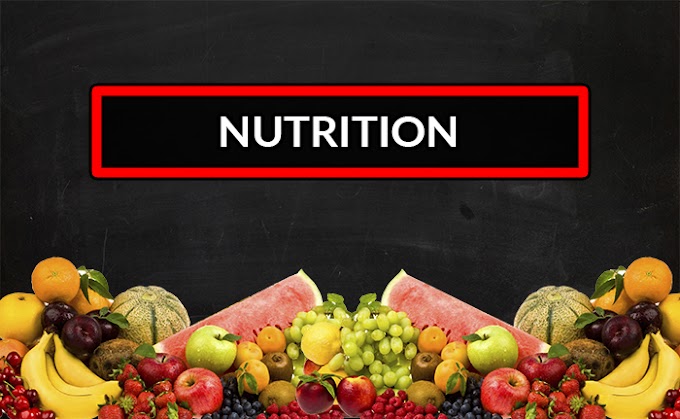Nutrition and Physical Health
Introduction
Good nutrition plays a crucial role in maintaining and promoting physical health. The food we consume provides our bodies with essential nutrients, energy, and building blocks for growth, repair, and overall well-being. In this article, we will explore the significance of nutrition in supporting physical health and delve into the various aspects of a healthy diet that can contribute to optimal well-being.
Nutrition is critical part of health and development. Nutrition is very important and necessary part of our physical health. Good nutrition is just as important as exercise for our health. Without nutrition we cannot better our physical health as well as without any physical activity we cannot digest health nutrition. A nutritious and balanced diet of lean proteins, carbs, and good fats can help you eliminate extra weight and reduce your risk of many diseases such as:
- Heart Disease, leading to heart attack or stroke
- Cancer
- Diabetes
- Obesity [Basics About Nutrition and Weight Loss]
- High Blood Pressure
- Kidney Stones
- Osteoporosis (bone loss)
Good nutrition can also help improve mental health problems, such as depression, bipolar disorder, schizophrenia, ADHD, and Alzheimer’s disease.
The Role of Macronutrients
Carbohydrates
Carbohydrates are an important source of energy for the body. They are found in foods such as grains, fruits, vegetables, and legumes. When consumed, carbohydrates are broken down into glucose, which serves as the primary fuel for our cells. Adequate carbohydrate intake ensures that our bodies have enough energy to carry out daily activities and support physical performance.
Proteins
Proteins are essential for the growth, repair, and maintenance of body tissues. They are composed of amino acids, which are the building blocks of life. Consuming protein-rich foods like lean meats, fish, eggs, dairy products, and legumes helps to support muscle development, strengthen the immune system, and facilitate the production of enzymes and hormones.
Fats
Contrary to popular belief, fats are not inherently bad for our health. In fact, they play several vital roles in our bodies. Dietary fats provide insulation, protect vital organs, and assist in the absorption of fat-soluble vitamins. Including sources of healthy fats, such as avocados, nuts, seeds, and olive oil, in our diet is important for maintaining optimal physical health.
Micronutrients and their Importance
Vitamins
Vitamins are essential nutrients that our bodies require in small amounts to function properly. They are responsible for various biochemical reactions and play a critical role in maintaining good health. Each vitamin has unique functions, and a deficiency in any particular vitamin can lead to specific health problems. Consuming a diverse range of fruits, vegetables, whole grains, and dairy products helps ensure an adequate intake of vitamins.
Minerals
Minerals are vital for the proper functioning of our bodies. They are involved in numerous physiological processes, such as bone formation, nerve transmission, and fluid balance. Calcium, magnesium, iron, zinc, and potassium are examples of essential minerals that support physical health. Including mineral-rich foods, such as leafy greens, dairy products, nuts, and whole grains, in our diet is crucial for maintaining optimal well-being.
Hydration and Physical Health
Water is often overlooked when discussing nutrition, but its importance cannot be overstated. Staying properly hydrated is essential for maintaining physical health. Water aids in digestion, nutrient absorption, temperature regulation, and the elimination of waste products. It is recommended to consume an adequate amount of water throughout the day to ensure optimal bodily functions.
The Impact of Nutrition on Disease Prevention
A well-balanced diet can significantly contribute to the prevention of chronic diseases. Research has shown that poor nutrition is associated with an increased risk of conditions such as obesity, heart disease, diabetes, and certain types of cancer. By adopting a healthy eating pattern and consuming nutrient-dense foods, individuals can reduce the likelihood of developing these diseases and enhance their overall quality of life.
Strategies for Optimal Nutrition
Eat a Varied and Balanced Diet
To obtain the full spectrum of essential nutrients, it is crucial to consume a diverse range of foods. Including fruits, vegetables, whole grains, lean proteins, and healthy fats in your meals can provide a wide array of vitamins, minerals, and other beneficial compounds.
Practice Portion Control
While the quality of food is essential, portion control also plays a significant role in maintaining a healthy diet. Overeating can lead to weight gain and an increased risk of chronic diseases. It is important to listen to your body's hunger and fullness cues and practice mindful eating.
Limit Processed and Sugary Foods
Processed foods, such as fast food, sugary snacks, and beverages, often lack essential nutrients and can contribute to weight gain and adverse health effects. It is advisable to limit the consumption of these foods and opt for whole, unprocessed alternatives whenever possible.
Seek Professional Guidance
If you have specific dietary needs or health concerns, it is beneficial to consult with a registered dietitian or nutritionist. These professionals can provide personalized recommendations and guidance to help you achieve your health goals.
Conclusion
Nutrition plays a vital role in supporting physical health. A well-balanced diet that includes an adequate intake of macronutrients, micronutrients, and proper hydration can contribute to overall well-being and disease prevention. By making informed food choices and adopting healthy eating habits, individuals can optimize their physical health and enhance their quality of life. Achieving and maintaining a healthy weight includes healthy eating, physical activity, optimal sleep, and stress reduction.








